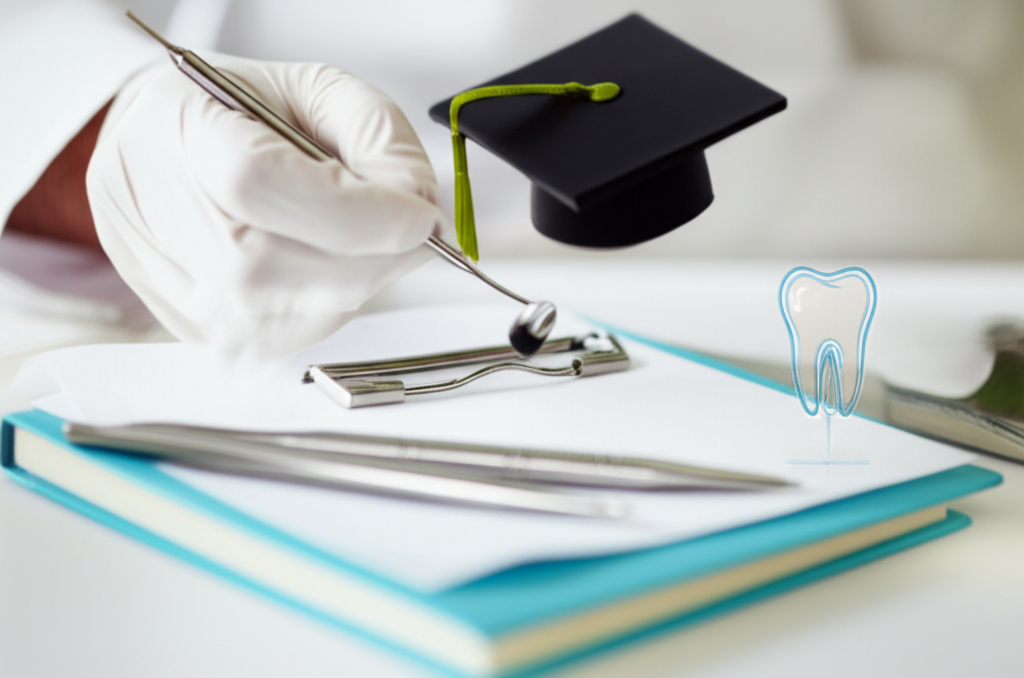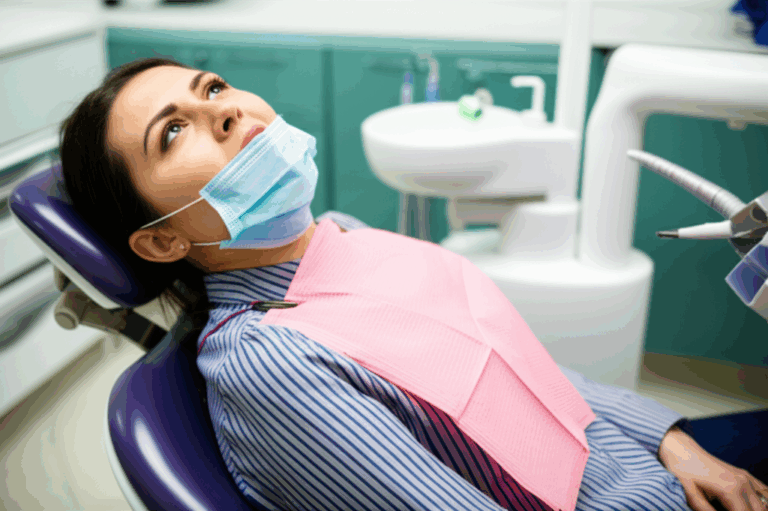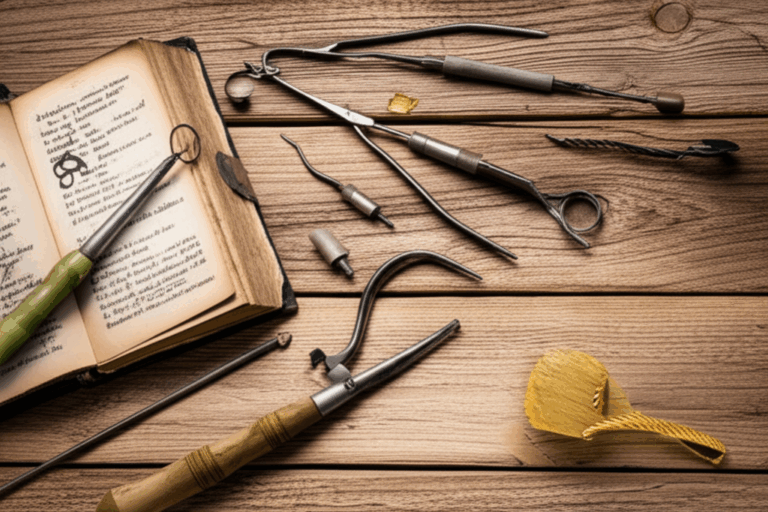
How to Become a Dentist: Education, Licensing & Key Qualifications
Curious about what it really takes to become a dentist? Maybe you’re planning your own road—or just want to know why dentists work so hard for their white coats. Either way, this guide breaks down every step in plain, clear words. From what you study in school to the big tests, key skills, and even the traits that make a great dentist—I’ll show you the path. You’ll see how hard work, the right help, and smart choices can lead to a good job caring for smiles. If you’ve ever wondered “Is dentistry for me?” this is for you.
Table of Contents
1. Introduction: Why Dentistry Is More Than Just Teeth
When I first thought about becoming a dentist, I imagined fixing teeth and making people smile. It turns out, being a dentist is so much more. Dentists help people live healthier and spot problems early, sometimes even ones that save lives. Every day brings new things and the chance to help people.
Why read this article? Because knowing what’s really involved—before, during, and after dental school—can help you decide if you’re ready for this path. This guide shows you the timeline, costs, tests, and even the “soft skills” you might not have guessed.
2. What Do You Need to Become a Dentist?
Let’s start with a simple question: What do you need to become a dentist in the United States?
- A college (bachelor’s) degree—mostly in science
- A passing score on the DAT
- Graduation from an approved dental school (DDS or DMD)
- Passing scores on both a national test and a regional clinical test
- A state license
- Special training for certain jobs (like oral surgery or orthodontics)
- Good people skills, quick thinking, and steady hands
It’s a long path. But lots of patients count on you to know their teeth inside and out. Knowing the basics is step one. Now, let’s look at each part.
3. Do I Have to Go to College First?
Yes. Every dentist starts with at least a four-year college degree. Most people pick a “pre-dental” track—which means lots of science classes. Here’s what you’ll need:
- Biology
- General Chemistry
- Organic Chemistry
- Physics
- Biochemistry
- Math (Calculus or Statistics)
- English
Pick a major like Biology or Chemistry. But you don’t have to! The important part is finishing the required classes and keeping a high GPA. Most future dentists need a GPA of at least 3.5. When I was in college, joining study groups and working with partners in the lab really helped me when those science classes got hard.
Do more than just study, though. Dental schools look for students who volunteer, work in labs, or follow around real dentists. Joining a group like the American Student Dental Association also shows you’re serious about being a dentist.
4. What Is the Dental Admissions Test (DAT)?
After college, you face your first big test: the Dental Admissions Test (DAT). This test checks if you’re ready for dental school. It covers science, reading, math, and something called perceptual ability—basically, how well you see and solve puzzles in 3D.
The DAT has four parts:
| Section | What’s Tested |
|---|---|
| Natural Sciences | Biology, General Chemistry, Organic Chemistry |
| Perceptual Ability | Visual puzzles, shapes, space skills |
| Reading Comprehension | Understanding dental/science texts |
| Quantitative Reasoning | Math problems and logic puzzles |
A good score? Aim for a 20 (out of 30) or more on each part. Your DAT results matter a lot—dental schools use them to compare students across the country.
Tip: Start early! Many students use practice tests or even join study classes before the test.
5. Dental School: What Does It Take?
Ready for the next step? Dental school is usually four years long. You’ll earn either a Doctor of Dental Surgery (DDS) or a Doctor of Dental Medicine (DMD). They’re the same thing—just a different name, based on the school.
Years 1-2: Learning the Basics
The first two years are mostly science and lab work:
- Anatomy
- Physiology
- Pharmacology
- Microbiology
- Dental materials
- Practice on fake teeth and models
You also start to learn about caring for patients with teachers watching.
Years 3-4: Real Patient Time
In your last two years, you go into real clinics. You’ll treat real patients (with lots of help) and sharpen your skills:
- Fillings
- Crowns
- Root canals
- Gum care
- Simple oral surgery
Dental schools must be approved by the Commission on Dental Accreditation (CODA)—which means they meet strict standards. If you go to an unapproved school, you can’t get licensed!
6. Specialty Dental Training—Is It Required?
You finished dental school—so what’s next?
Most dentists start working with patients right away after they’re licensed. But some get extra training, called a residency. These are optional unless you want to be a specialist in things like straightening teeth or surgery.
- General Practice Residency (GPR): A one-year program for more general dentistry.
- Advanced Education in General Dentistry (AEGD): Like GPR, but often more patient care.
- Specialty Residencies: For jobs such as:
- Orthodontics: Straightening teeth
- Oral and Maxillofacial Surgery: Surgery for jaws, mouth, and face
- Endodontics: Root canal treatments
- Periodontics: Gum treatments
- Pediatric Dentistry: Kids’ dental care
- Prosthodontics: Dentures, bridges, implants
Specialty programs can last 2–6 years (for oral surgery, it’s usually the longest). You’ll need to pass more tests and get certified for your specialty.
7. Must-Have Licenses: Can I Just Start Right Away?
Here’s a big one: You can’t work as a dentist without a license!
After you finish dental school, you’ll need to pass national and state tests:
- National Board Dental Examination (NBDE/INBDE): A big written exam about dental science and patient care. Since 2022, most people take the INBDE (Integrated National Board Dental Examination), which puts everything in one test.
- State or Regional Clinical Board Exam: A hands-on test—yes, real dental work on patients or models—to make sure you’re safe and ready.
- Background Check & Law Exam: States often ask for a background check and a test on dental law and rules.
Once you pass these, you can ask for a state dental license. Some states have their own rules—so always check with your state’s dental board.
8. How Do Dentists Stay Licensed?
Getting your license is a big deal—but you have to keep it valid!
Almost every state says dentists must do continuing education. This means taking classes every year or two on things like:
- Patient safety
- The newest dental technology
- Infection safety
- New care ideas
Most states ask for 15–30 hours of classes each year. Don’t keep up? Your license could be in trouble.
Joining groups like the American Dental Association (ADA) or local dentist clubs isn’t required—but I really suggest it. Not only do these groups offer continuing education, but they also keep you up to date on dental laws, ethics, and ways to help your office do better.
9. What Skills Make a Great Dentist?
Dentists are often remembered for their “hand skills,” but there’s a lot more:
Good Hands:
Dentists work in tiny spaces—fixing teeth, polishing ceramic teeth, and even putting in implants. Steady hands and good hand-eye work are a must. I used to build model cars as a kid—it really does help!
Quick Thinking:
Every mouth is different. Is that toothache a cavity, or something worse? Can I fix this broken crown? You’ll need to think fast and pick the best answer, sometimes while working.
Talking Skills:
You have to explain hard treatments so anyone (even a five-year-old!) can get it. Listening to people’s worries and answering their questions builds trust.
Caring & Kindness:
A lot of people are scared of the dentist. You need to help them feel safe and cared for. A simple “You’re doing great!” can turn a scary visit into a comfy one.
Paying Attention:
Dentists have to spot problems early—before they get worse. Being exact with tools and materials is huge. Even a small mistake can matter.
Business Sense:
If you run your own office, you’ll handle money, do ads, and manage staff. Knowing a good dental ceramics lab or crown and bridge lab helps keep your work strong and your business running well.
10. Are You Ready for the Financial and Time Commitment?
Here comes the tough part: Becoming a dentist takes a lot of time and money.
Time:
- 4 years college
- 4 years dental school
- 0–6 years residency for specialists
That’s at least 8 years in school, maybe more.
Money:
Dental school is pricey. The average cost is:
- $50,000–80,000 per year at public schools
- Up to $100,000 per year at private schools
- Many grads owe $300,000+ in student loans
Add the cost of DAT study, license tests, and residency. It sounds big, and it is a lot. But dentists also get paid well: The middle pay for dentists is about $163,000 each year, with some earning more, especially in jobs that are hard to fill.
Job Outlook:
According to the U.S. Bureau of Labor Statistics, dentistry is growing at about 4% per year. There’s steady demand—older people need more teeth work, and more people know how important dental care is.
The real questions:
- Are you ready for many years of school?
- Can you handle the loans (and does the reward make sense for you)?
- Are you willing to work hard, practice, and ask for help when you need it?
If your answer is Yes, then you’re already on the way!
11. Frequently Asked Questions (FAQ)
Q: Do I need a certain major for dental school?
A: No, but most choose Biology or Chemistry for the required classes.
Q: Is the DDS or DMD better?
A: They are the same degree. Both let you work as a dentist.
Q: How hard is it to get into dental school?
A: Very! Most dental schools pick only about 5–10% of people who apply. High GPA and DAT scores help.
Q: Are there different ways to specialize?
A: Yes. You can go into things like orthodontics, oral surgery, or working with kids if you do more school and training.
Q: How do dental labs fit in?
A: Dentists today work closely with great labs for crowns, implants, digital scans, and more. For example, working with a top digital dental lab can make tough cases easier and help you offer more choices to patients.
12. Key Takeaways
- Dentists need at least eight years of school—often more for specialists.
- Science classes, good grades, and real-world experience are needed from the start.
- The Dental Admissions Test (DAT) is a must-pass after college.
- DDS and DMD degrees are the same—the school just uses a different name.
- Dental school mixes classroom, hands-on labs, and real patient care.
- More training lets you pick a specialty, but it’s not always needed.
- To work, you’ll need to pass tough written and hands-on tests—and get a state license.
- To keep working, you have to keep learning and follow strict rules.
- Skills like steady hands, quick thinking, and kindness make the best dentists.
- Becoming a dentist takes years and money—but gives you a way to help people every day.
- Picking the right help, like a good china dental lab, makes your dental office better.
Thinking about dentistry? Plan ahead, study well, and build the traits that really help patients. That’s how you become someone’s reason to smile!








